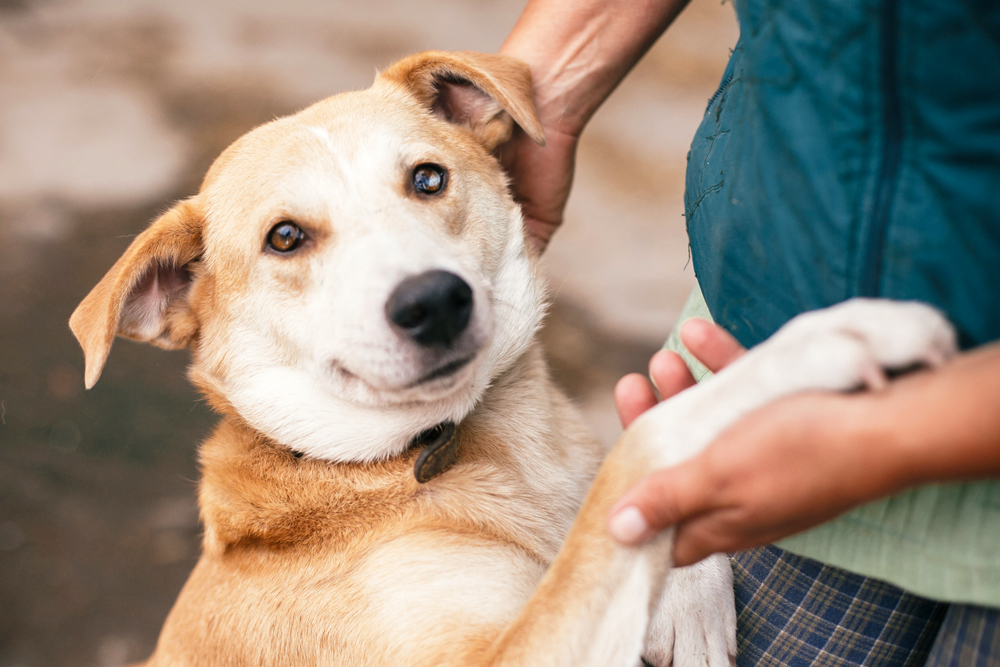- Dog CareDog LifeCommunity
- Photo Contest
Photo Contest- Giveaways
Westminster 2021: The Show Must Go On
The Westminster Kennel Club Dog Show is the most historic dog-sporting event in the world. It has taken place every year since May 1877. Throughout its 145 year history, Westminster has been held at Madison Square Garden in New York City since 1921. It is the venue’s longest standing tenant.
The 2021 Westminster Dog Show, however, has some notable changes in store. For the first time in its history, the show will be held at the Lyndhurst Estate in Tarrytown, NY, and broadcast (live on the FOX network) June 12 and 13, instead of earlier in the year. As attendees and avid living-room watchers are aware, the show normally takes place in February; the 2020 show took place as usual, right before the global pandemic hit and changed how we currently hold events. As of right now, the WKC is planning to return to Madison Square Garden for their 2022 show.
Photo J. Grassa for WKCWe spoke to Gail Miller Bisher, Westminster’s Director of Communications, to get an inside look at what has gone into planning the 2021 show and what Westminster fans should expect this year.
First off, there will be four newly recognized breeds competing at Westminster for the first time: the Dogo Argentino, the Barbet, the Belgian Laekenois, and the Biewer Terrier will all be making their debut.
Behind the scenes safety, of course, is the top concern. “Our first priority for 2021 was to find an outdoor venue with ample space to safely hold the dog show,” says Gail. “For our show at Lyndhurst, the club’s safety protocols will be elevated to a new level based on local and state health guidelines and beyond.”
As with everything the world has been experiencing over the past year, things are subject to change, but plans for the show are still moving forward.
Photo Courtesy of Lyndhurst Archives“The biggest challenge of planning the show during the winter of 2020 is the ever-changing local and state guidelines surrounding the pandemic and the uncertainty of what June 2021 will look like,” Gail explains. “If spectators are not allowed at the show, then our fun, educational benching area, where spectators can pet the dogs and speak with the owners, will not take place in 2021.”
But while the WKC team has faced planning challenges, there have also been some unexpected benefits of holding the show at this historic outdoor venue.
“The major benefit to our 2021 location is the expansive grounds that will allow us to have a safe, socially distanced dog show on Lyndhurst’s 67-acre estate,” says Gail. “Hosting an outdoor event will have a different energy than being at Madison Square Garden, but the club will create an equally beautiful show and vibe for its exhibitors and television audience.”
Check out the detailed schedule of events here!
Social Distancing? Need a drink? Help is on the way!
Before now the dog most associated with alcohol was probably the St. Bernard. These giant dogs have often been portrayed carrying small barrels of brandy around their necks to help avalanche victims (although alcohol is not actually what you want to be drinking if you are stuck in the snow). But now, there’s a new dog on the scene. Move over St. Bernards, there’s a Boxer coming with alcohol to save us during the pandemic! During COVID-19, a Boxer named Soda Pup is hooking up the Hagerstown, Maryland area with bottles of wine from Stone House Urban Winery.
Many small businesses are struggling right now as social distancing requires them to close their doors or change the way they operate. Times are hard, but Soda Pup has found a unique way to lend a paw during the pandemic. The Boxer is personally (pawsonally?) delivering wine from his family’s winery, allowing customers and winery employees to continue to socially distance and brightening people’s day at the same time.
Soda Pup was already a customer favourite at the winery, but he started his official pandemic work on March 20th when he sweetly hijacked the company’s Facebook page and made an official post: “Hi all, Soda here again. So, mom has been filling me in on this COVID-19 virus thing and she says that it is REALLY affecting small businesses like our little winery. Mom says that we all have to pitch in and pull our weight, that includes me as well. So, if you are out shopping and have kids in the car, or just want to keep your distance from other folks, give us a call and place your order, I'll try to personally deliver your wine in my nifty new wine saddle bag.”
Customers place orders by phone, allowing them to talk with winery staff about the right wine for them. When customers reach the winery, they call and Soda comes out to deliver the wine right to the car! Since the start of the pandemic, Soda Pup has been equipped with a saddle bag vest which allows him to carry two bottles of wine per trip. Lori Yata, Soda’s guardian and co-owner of the winery, told Modern Dog that he was a natural at wine delivery—she strapped his saddle bag on and he went right to work! “I do have to make sure there are not critters around, like squirrels, robins etc….not sure he could resist that and finish his delivery.” Lori noted.
Who doesn’t need a bottle of wine delivered right to your car by an adorable dog? Soda has a sensitive tummy so the winery is asking that customers only feed him the treats that Soda’s mom has added to his saddle bags so that customers can “tip” him. Since posting videos of Soda bringing wine out to cars, he has gone viral. Visitors to the winery can take selfies with Soda and are tagging the winery on social media.
“We've had people call in just specifically to have Soda Pup bring wine out to them, people who have never even been here before," Lori told local news station WJLA.
Unfortunately, at this time Stone House Urban Winery does not offer shipping, but if you live near Hagerstown and you’re needing to pick up a bottle or two of wine, Soda Pup is on the job and ready to deliver! When asked how Soda feels about his new job, Lori enthused, “Soda loves what he is doing. When he sees me go for his saddle bag, he comes right over standing ready, willing, and able. As soon as the door opens, he walks out, looks to see where his friends are, and heads up the walk. If it is someone he knows he is literally trotting up the path, sometimes going cross country across the grass. Regardless of old friends or new, it just warms my heart to see how excited he is to do his job.” Let’s raise a glass to one dog making these uncertain times a whole lot brighter.
China Reclassifies Dogs as Pets Not Livestock
In the wake of COVID-19, there has been a lot of discussion around when will things go back to normal and if what we consider “normal” will change. The good news is that some of those changes may be good ones, especially for dogs.
The novel coronavirus is thought to have originated in a so called “wet market” in Wuhan Province, China dealing in the sale of live wild animals, suggesting animal-to-person spread. (Many of the animals found in these markets are endangered and trafficked for sale as traditional “medicine.”)
As part of their systemic response to COVID-19, many countries around the world are looking at animal welfare, factory farming, and wildlife markets to investigate if conditions in these facilities can lead to viruses spreading to animals and humans. As a result of such inquiry, China’s Ministry of Agriculture and Rural Affairs has released new animal classifications of animals. Under these new guidelines, dogs will be explicitly classified under the law as pets rather than livestock. This is great news for ending the “farming” and butchering of dogs for meat.
Under these policy changes, the Humane Society International (HSI) reports that the Chinese Ministry of Agriculture stated, “With the progress of human civilization and the public’s concern and preference for animal protection, dogs have changed from traditional domestic animals to companion animals. Dogs are generally not regarded as livestock and poultry around the world, and China should also not manage them as livestock and poultry.” This new regulation also outlaws the breeding, consumption, and trading of wildlife in response to the COVID-19 outbreak which is believed to have originated in bats in a wet market.
“Recognizing that dogs hold a special bond with humans is an essential first step towards eliminating the consumption and trade in dog meat.”
This new regulation from the Ministry of Agriculture comes just a month after Shenzhen became the first city in China to officially ban eating dog meat. Humane Society International has been a vocal supporter of ending the dog meat trade in China. The organization estimates that 10 million dogs are killed annually for meat in China. In recent years, dog meat has fallen out of favour across China, especially in younger generations. Dog meat is not a part of the culinary mainstream in the country. In fact, a 2017 survey organized by Humane Society International shows that dog meat is only eaten infrequently by less than 20 percent of the Chinese population.
Dog meat bans already exist in Taiwan, Thailand, Singapore, Indonesia, Hong Kong, and The Philippines. This new document released by China represents the first time that dogs have explicitly been commented on by the Chinese government in regard to meat. Dr. Peter Li, China policy specialist at Humane Society International, says: “This is the first time we’ve ever seen China’s national government explain that dogs are companion animals. Recognizing that dogs hold a special bond with humans is an essential first step towards eliminating the consumption and trade in dog meat. This could be a pivotal moment that provides encouragement for other cities across the country to follow Shenzhen’s lead to ban the eating of dogs and cats.”
HSI has been instrumental in shutting down dog meat farms across Asia by supporting farmers transitioning their business to more humane industries and financially supporting these farmers in their new business ventures. HSI then takes custody of the dogs, rehabilitating them and transporting many of them to the United States, Canada, and the UK where they are adopted. Unfortunately, because of COVID-19 rescue transports have temporarily not been able to bring dogs out of Asia, so they are ensuring the dogs are being cared until they can be transported internationally.
Dogify Your Inbox
Sign up for the FREE Modern Dog Magazine newsletter & get the best of Modern Dog delivered to your inbox.
"*" indicates required fields
By clicking the arrow, you agree to our web Terms of Use and Privacy & Cookie Policy. Easy unsubscribe links are provided in every email.
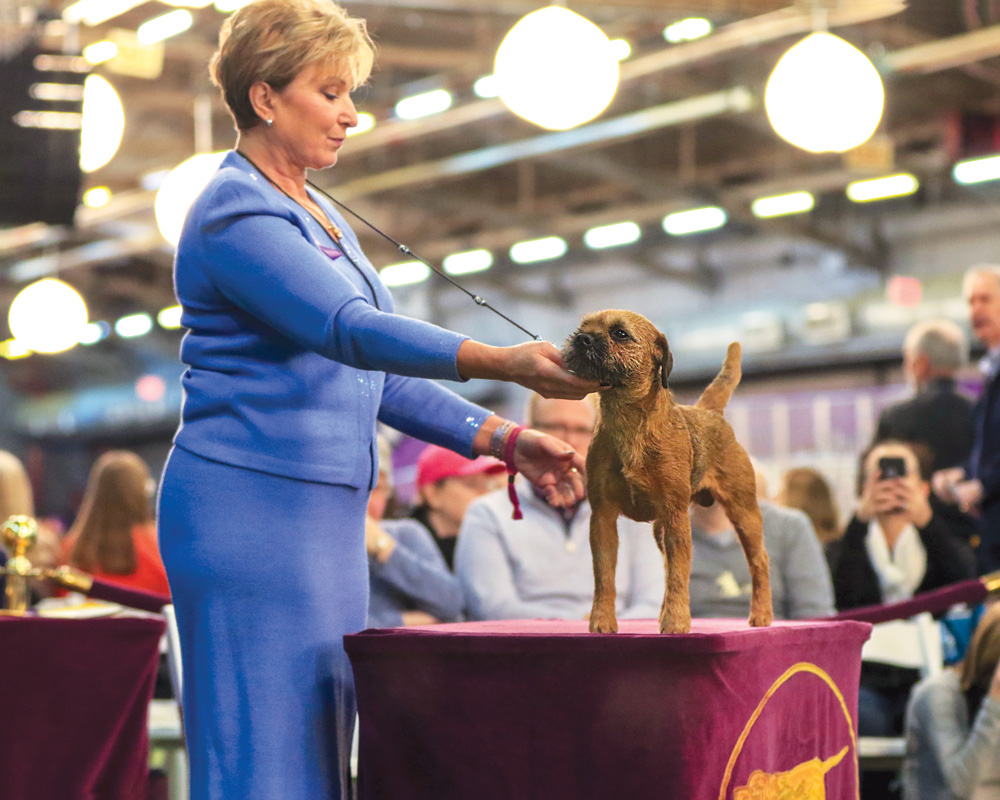

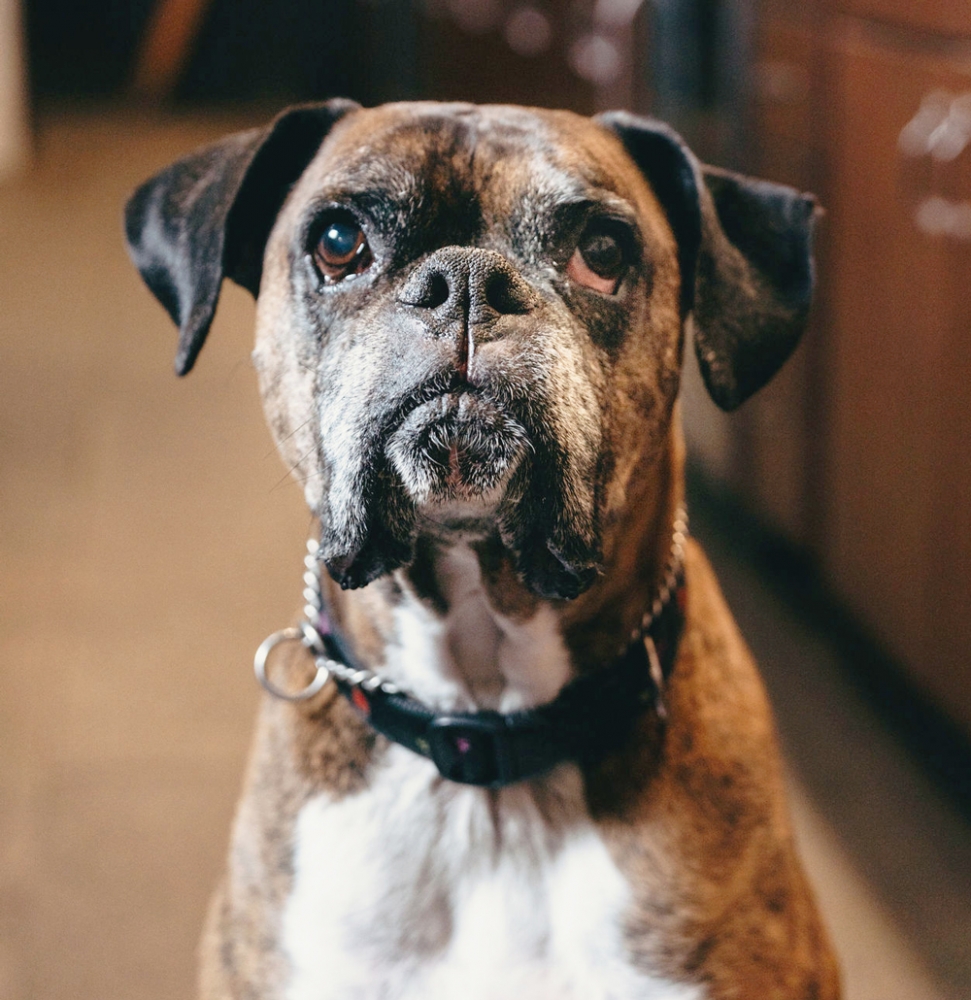 Before now the dog most associated with alcohol was probably
Before now the dog most associated with alcohol was probably 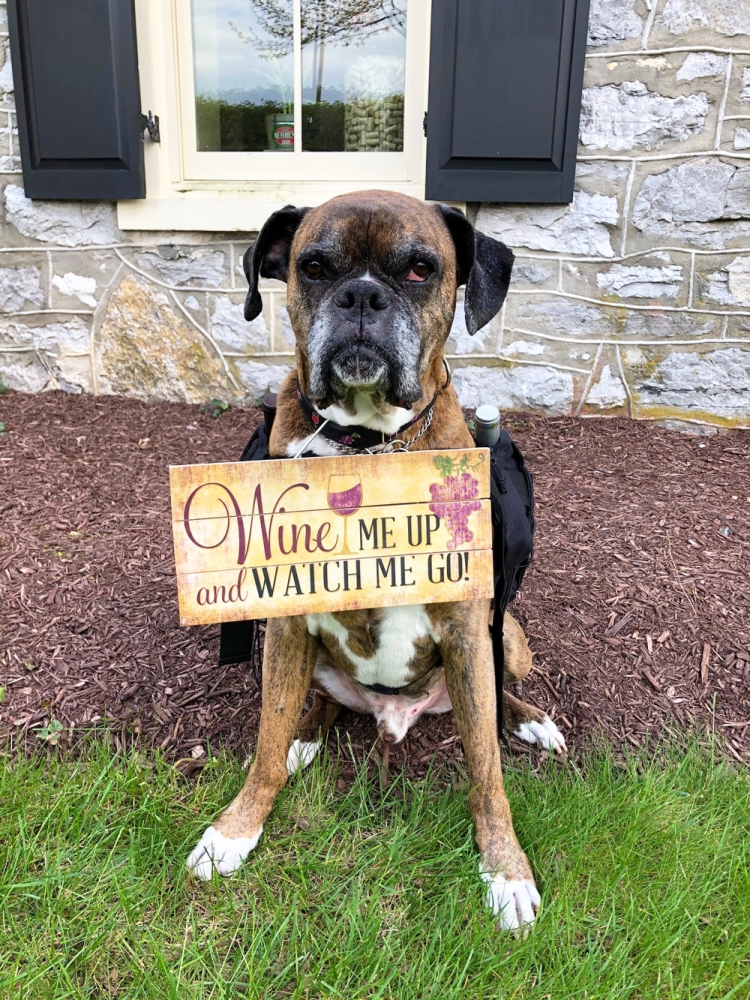
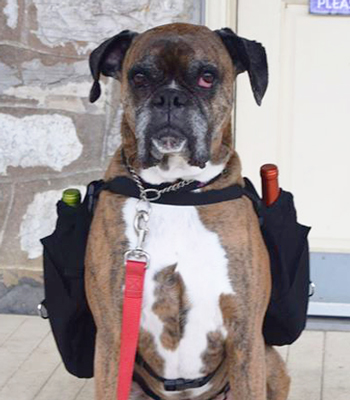 Who doesn’t need a bottle of wine delivered right to your car by an adorable dog? Soda has a sensitive tummy so the winery is asking that customers only feed him the treats that Soda’s mom has added to his saddle bags so that customers can “tip” him. Since posting videos of Soda bringing wine out to cars, he has gone viral. Visitors to the winery can take selfies with Soda and are tagging the winery on social media.
Who doesn’t need a bottle of wine delivered right to your car by an adorable dog? Soda has a sensitive tummy so the winery is asking that customers only feed him the treats that Soda’s mom has added to his saddle bags so that customers can “tip” him. Since posting videos of Soda bringing wine out to cars, he has gone viral. Visitors to the winery can take selfies with Soda and are tagging the winery on social media. 